Equality & Social Progress
The Administration’s work included pushing through sweeping rights and protections for LGBT Americans, making our immigration system fairer and safer, and tackling poverty and investing in communities.

Invested in Education
The Obama Administration catalyzed significant state education reforms to adopt higher academic standards to prepare students for college and careers, which 49 states and the District of Columbia have done. Additionally, the Administration invested in great teachers and leaders, and turned around low-performing schools through $4 billion in Race to the Top competition. Following these reforms, the high school graduation rate reached its highest level ever recorded, dropout rates fell sharply for low-income and minority students, and since 2008, college enrollment for African-Americans and Hispanics has increased by more than one million students.


August 3, 2010
Fought for a Fairer Criminal Justice System
In August 2010, President Obama signed the Fair Sentencing Act, which reduces the disparity in the amounts of powder cocaine and crack cocaine required for the imposition of mandatory minimum sentences and eliminates the mandatory minimum sentence for simple possession of crack cocaine. It also increases monetary penalties for major drug traffickers.
Additionally, in July 2015, President Obama visited the El Reno Federal Correctional Institution outside of Oklahoma City, marking the first visit by a sitting President to a federal prison.

President Obama Visits the El Reno Federal Correctional Institution
“ If we are serious about solving this problem, then we're going to not only have to help the police, we're going to have to think about what can we do — the rest of us — to make sure that we're providing early education to these kids; to make sure that we're reforming our criminal justice system so it’s not just a pipeline from schools to prisons; so that we're not rendering men in these communities unemployable because of a felony record for a nonviolent drug offense; that we're making investments so that they can get the training they need to find jobs. … And there’s a bunch of my agenda that would make a difference right now in that.”
–President Obama, Tuesday, April 28, 2015
December 13, 2010
The Healthy, Hunger-Free Kids Act
The Healthy, Hunger-Free Kids Act updated school meal nutrition standards for the first time in 15 years and increased school meal funding for the first time in 30 years. The law boosted the quality and nutrition of meals for over 50 million children through the National School Lunch and Breakfast Programs. Its regulations substantially increased offerings of fruits, vegetables, and whole grains, and reduced the amount of saturated fat, trans fat and sodium.

“ We can all agree that in the wealthiest nation on Earth, all children should have the basic nutrition they need to learn and grow and to pursue their dreams, because in the end, nothing is more important than the health and well-being of our children. Nothing. And our hopes for their future should drive every single decision that we make.”
–Michelle Obama, December 13, 2010
Improved Veterans’ Service
Mrs. Obama and Dr. Biden launched Joining Forces in 2011 and have seen incredible impacts since that time.
Employment: Through the Military Spouse Employment Partnership, more than 82,000 military spouses have been hired by nearly 300 private- and public-sector partners since the program launched, and more than 850,000 veterans and military spouses have been hired through Joining Forces-allied companies. 50 states have enacted legislation removing credentialing impediments for separating service members and 49 states have enacted legislation assisting in license portability for military spouses.
Education: More than 100 colleges and universities have signed on to “Educate the Educators”, the Joining Forces commitment that will help prepare educators to lead classrooms and develop school cultures that are more responsive to the social, emotional, and academic needs of children in military families. All 50 states have signed on to the Military Child Education Compact to support military students and families.
Wellness: Mrs. Obama launched the Campaign to Change Direction, a mental health public awareness campaign, garnering commitments to teach the “5 Signs” to more than 145 million people. Through a network of medical and mental health professional organizations, this campaign has created opportunities to prepare the nation’s current and future healthcare work force to meet the unique health needs of service members, veterans, and their families.

Travels with the First Lady and Dr. Biden - Joining Forces Launch

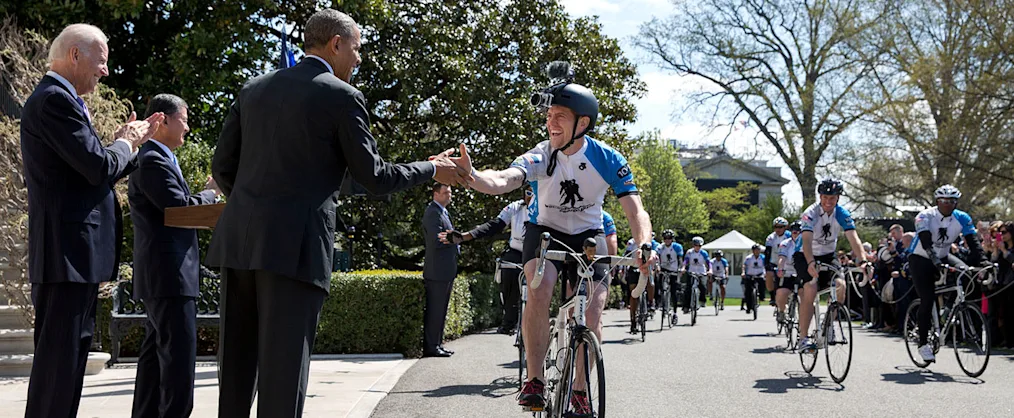


February 27, 2014
Launched “My Brother’s Keeper”
On February 27, 2014, the President launched “My Brother’s Keeper” (MBK) and issued a powerful call to action to close opportunity gaps still faced by too many young people, and often by boys and young men of color in particular. The President’s announcement encouraged candid dialogues around the country and a greater sense of responsibility among community leaders, and young people themselves to put all youth in a position to thrive, regardless of their race, gender, or socioeconomic status.
More than $500 million in non-federal grants and in-kind resources and $1 billion in independently committed financing have aligned with objectives of the MBK initiative.

The My Brother's Keeper Initiative
“ That’s what ‘My Brother’s Keeper’ is all about. Helping more of our young people stay on track. Providing the support they need to think more broadly about their future. Building on what works – when it works, in those critical life-changing moments.”
–President Barack Obama, February 27, 2014
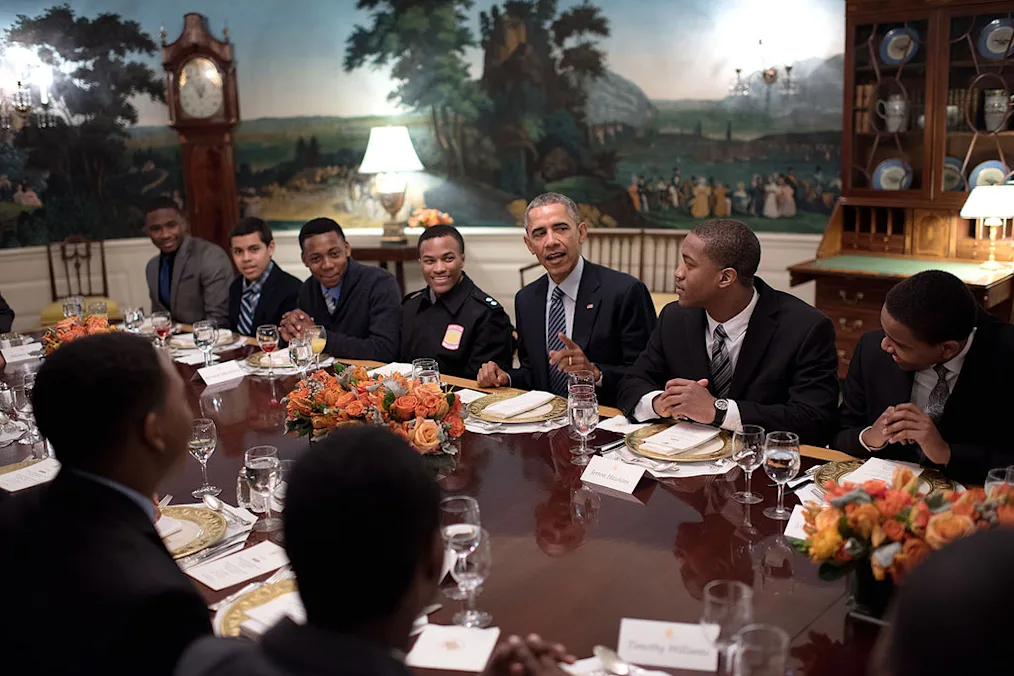
Fought for Fair Pay for All Genders
President Obama signed the Lilly Ledbetter Fair Pay Act, empowering workers to recover wages lost to discrimination by extending the time period for parties to bring pay discrimination claims, and took other steps helping to shrink the gender pay gap by more than 10 percent.
Additionally, he signed an April 2014 Executive Order that prohibits federal contractors from discriminating against employees who choose to discuss their compensation, further strengthening equal pay laws.

The Right to Equal Pay for Equal Work
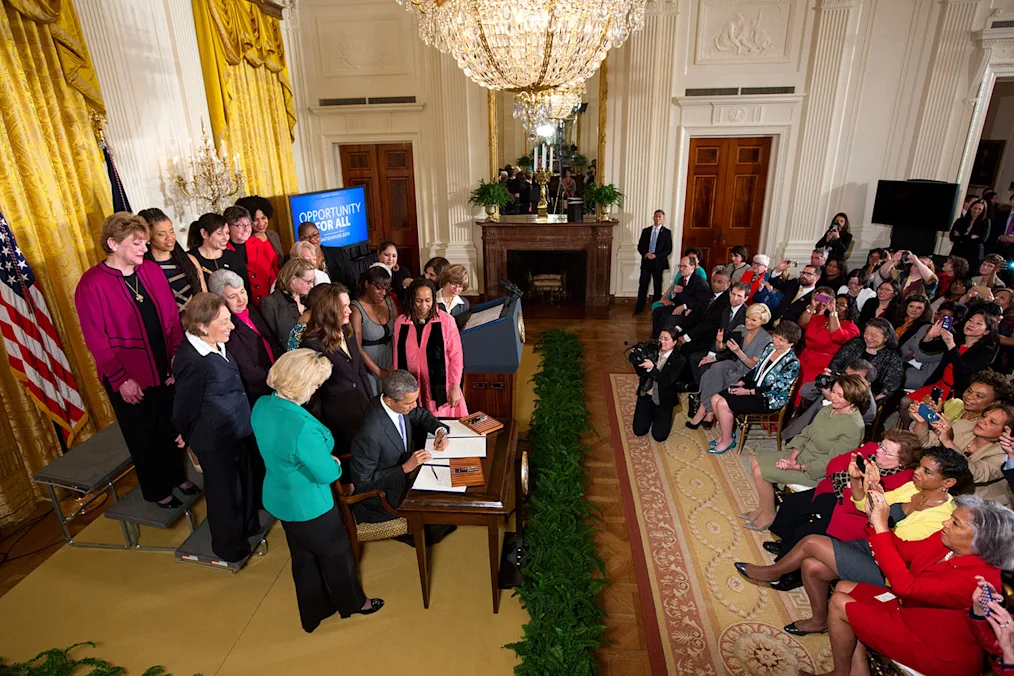
November 25, 2014
Reformed Our Immigration System
On November 21, 2014, the President established the White House Task Force on New Americans—a government-wide effort tasked with better integrating immigrants and refugees into American communities.
In June of 2012 the President implemented the Deferred Action for Childhood Arrivals (DACA) policy for young undocumented people who came to the U.S. as children in an effort to better focus enforcement resources. Since its establishment, the Department of Homeland Security has approved close to 740,000 DACA requests on a case-by-case basis. More than 526,000 individuals have also successfully renewed DACA.
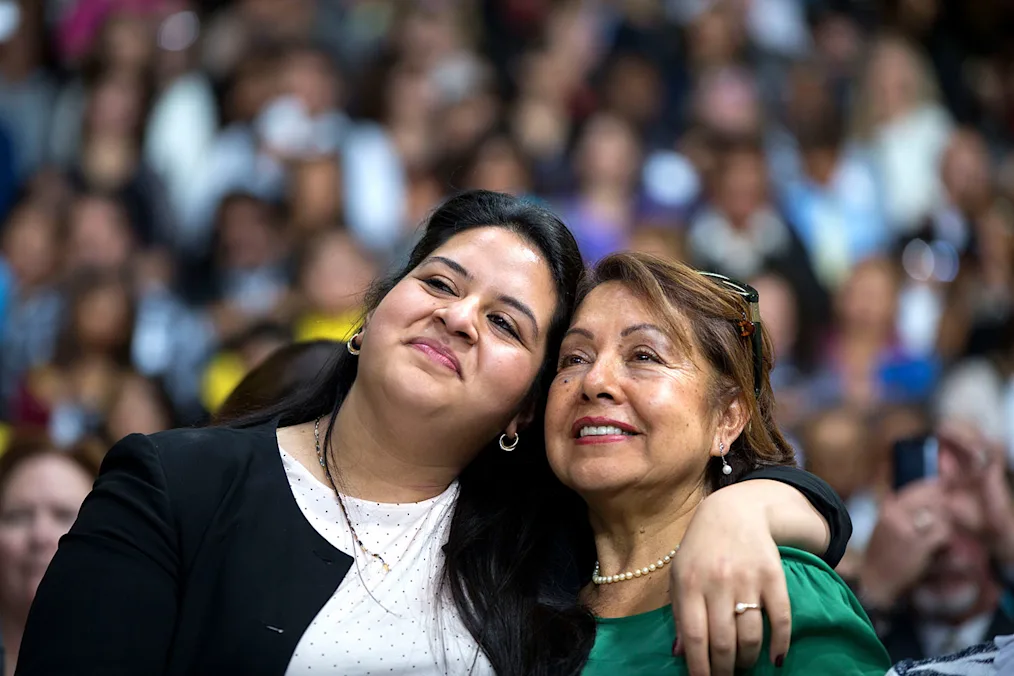
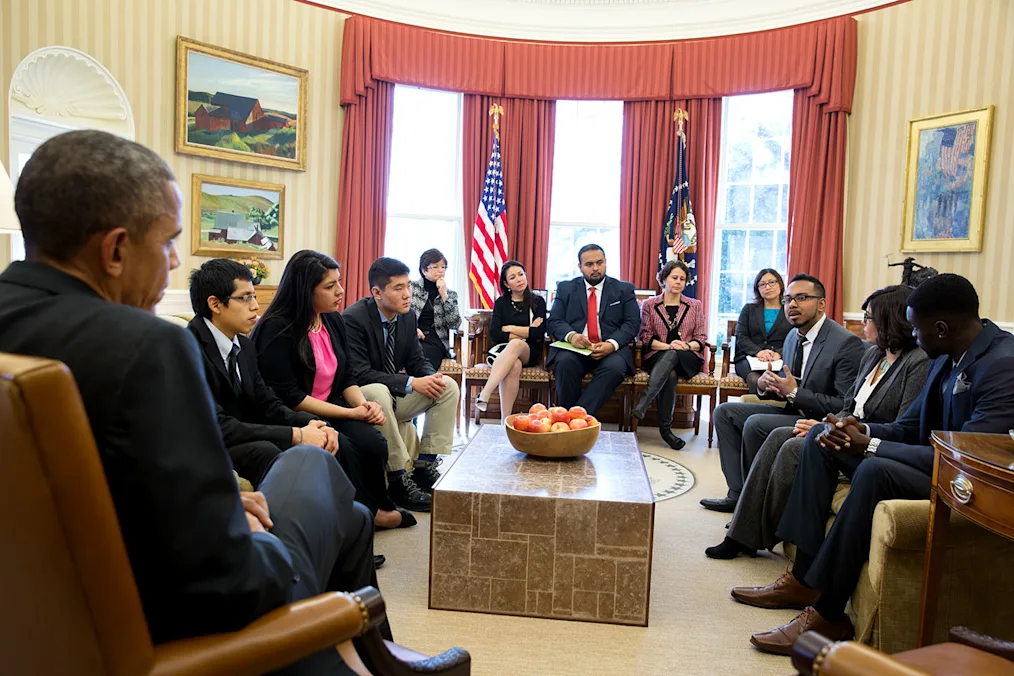
December 19, 2014
Expanded Opportunities for Those with Disabilities
On December 19, 2014, President Obama signed into law the Achieving a Better Life Experience Act, which allows individuals with disabilities receiving benefits to earn assets without risk of losing needed health benefits and income assistance
On February 10, 2015, Vice President Biden hosted an event at the White House with Members of Congress to highlight the benefits and achievements of the Achieving a Better Life Experience (ABLE) Act. The Act creates a new savings account for families with people with disabilities.

Vice President Biden Hosts an Event to Highlight the ABLE Act
March 7, 2015
Race and the Presidency, from Ferguson to Selma
On March 7, 2015, the First Family traveled to Selma, Alabama to commemorate the 50th anniversary of the marches from Selma to Montgomery.

President Obama Delivers Remarks on the 50th Anniversary of the Selma Marches
“ We honor those who walked so we could run. We must run so our children soar. And we will not grow weary.”
–President Barack Obama, March 7, 2015
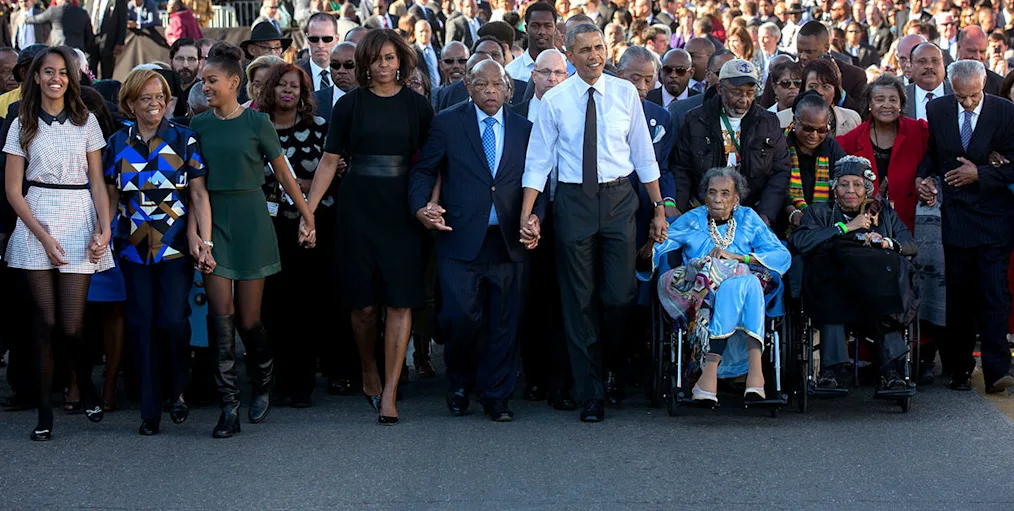
Invested in Neighborhoods and Communities
On April 30, 2010, the U.S. Department of Education launched the Promise Neighborhood program and designated 22 Promise Zones across the country to revitalize communities by attracting private investment, creating jobs, improving access to affordable housing, expanding educational opportunities, and partnering with local leaders to navigate federal programs.
In July 2011, the Obama Administration launched Strong Cities, Strong Communities Initiative (SC2), a partnership between the federal government and mayors of chronically distressed cities that have faced significant long-term challenges in developing and implementing their economic strategies. As part of the President’s priority to strengthen the middle class, create jobs, and build ladders of opportunity as communities regain their economic footing, SC2 named 14 locations to receive technical advice and expertise from federal inter-agency teams.
In 2015, the White House launched “Rural Impact,” a cross-agency effort led by the White House Rural Council to combat poverty and improve upward mobility in rural and tribal places by innovating program delivery in key programs, including designating ten rural communities for a demonstration that will provide targeted technical assistance to help communities adopt a two-generation approach to programs, policies, and systems to better meet the needs of low-income kids and parents.

President Obama Announces the First Five Promise Zones
Ensured Equality for LGBT Americans
In December 2010, the President signed the Don’t Ask, Don’t Tell Repeal Act of 2010 into law, allowing gay men and women to serve openly and with integrity in the U.S. military.
In February 2011, the Administration announced it would cease legal defense of the Defense of Marriage Act’s provision defining marriage as only between a man and woman, leading to the Supreme Court’s landmark decisions holding the Act unconstitutional.
Throughout his presidency, President Obama advocated in favor of a Constitutional guarantee of marriage equality for same-sex couples—a position the Supreme Court vindicated in its historic decision in Obergefell v. Hodges in 2015.

The President Speaks on the Supreme Court’s Decision on Marriage Equality

“ We, the people, declare today that the most evident of truths — that all of us are created equal — is the star that guides us still; just as it has guided our forebears through Seneca Falls, and Selma, and Stonewall... That is our generation's task — to make these words, these rights, these values of life and liberty and the pursuit of happiness real for every American.”
–President Barack Obama, Second Inaugural Address, January 21, 2013
January 4, 2016
Took Action on Gun Violence
Gun violence has taken a heartbreaking toll on too many communities across the country. Over the past decade in America, more than 100,000 people have been killed as a result of gun violence—and millions more have been the victim of assaults, robberies, and other crimes involving a gun. Many of these crimes were committed by people who never should have been able to purchase a gun in the first place.President Obama and Vice President Biden were committed to using every tool at the Administration’s disposal to reduce gun violence.The Obama Administration directed an overhaul of the background check system to make it more efficient and effective. The Administration clarified that it doesn’t matter where you conduct your business—from a store, at gun shows, or over the Internet: If you’re in the business of selling firearms, you must get a license and conduct background checks. The Administration also ensured States are providing records to the background check system, and work cooperatively with jurisdictions to improve reporting.Additionally, the Administration issued a memo directing every U.S. Attorney’s Office to renew domestic violence outreach efforts, and called for significant new resources to increase access to mental health care.
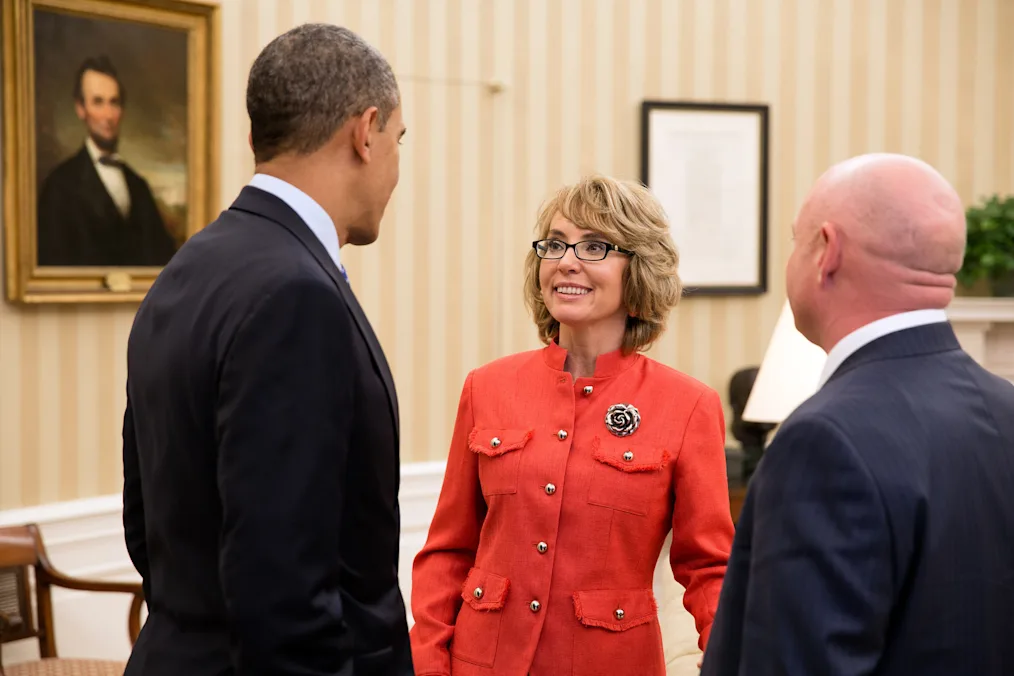
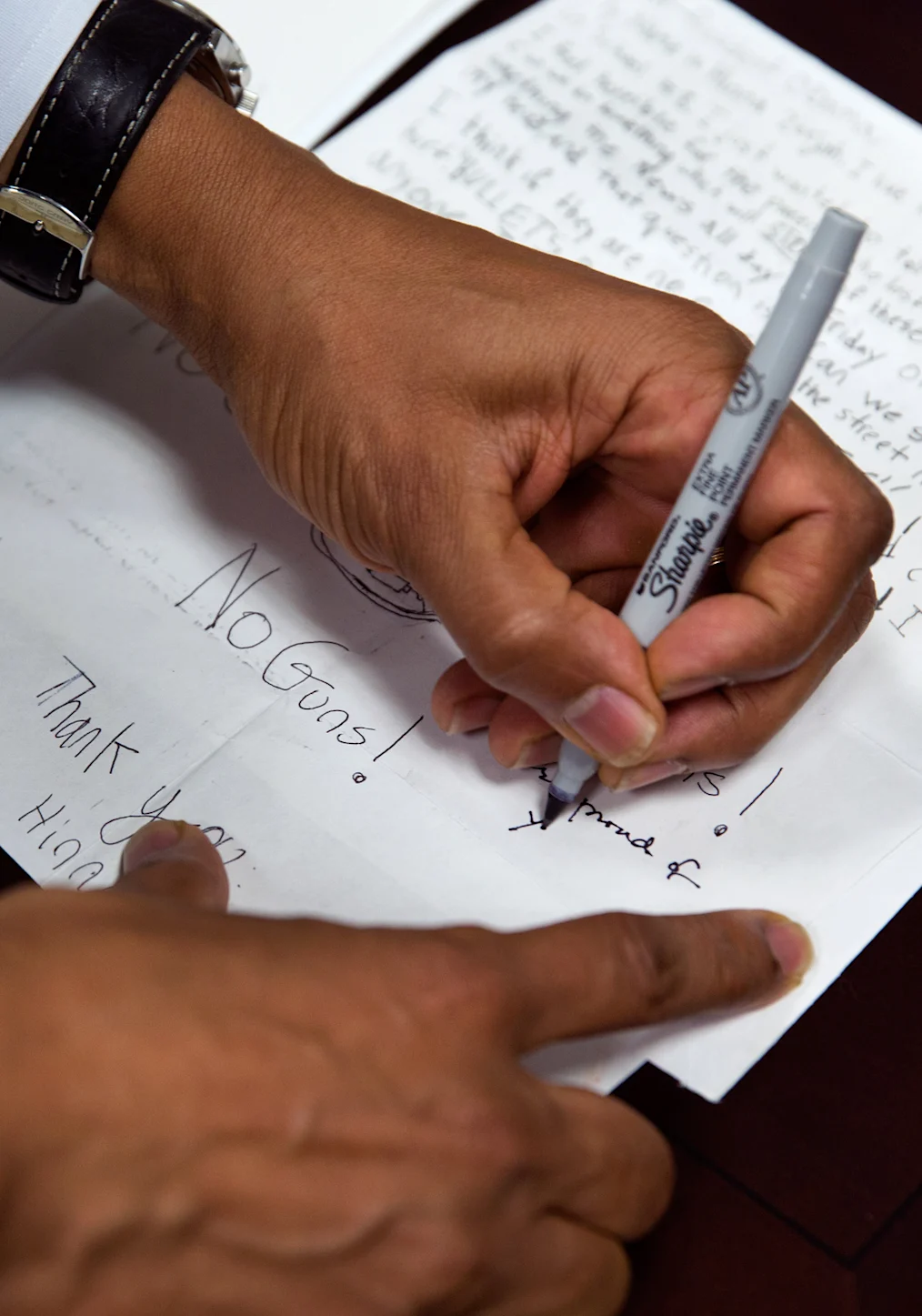
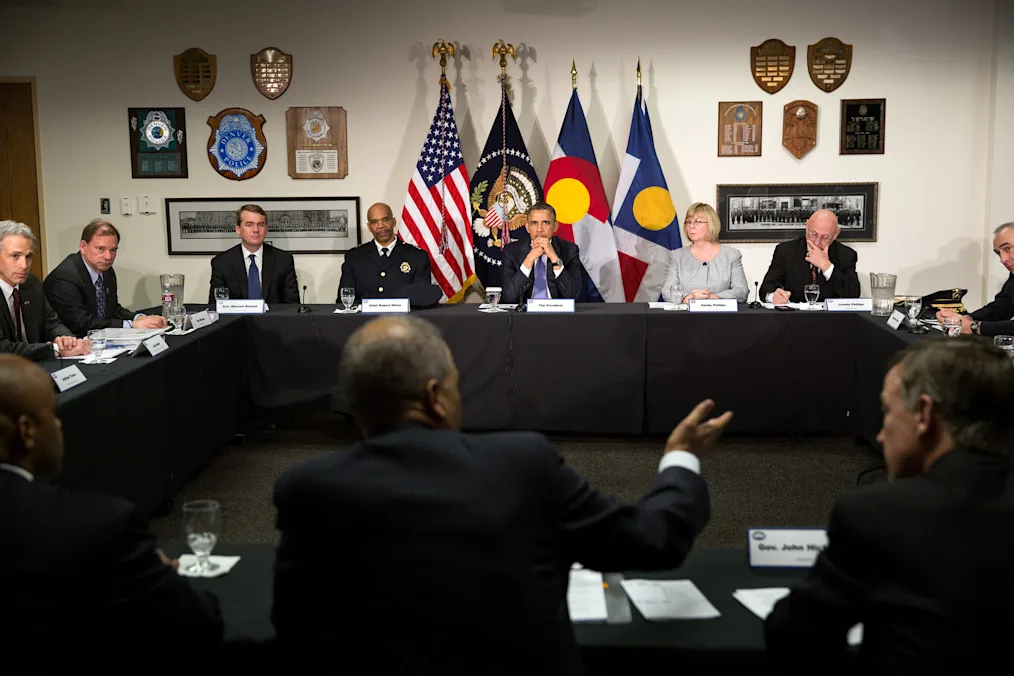
Supported the FCC’s Net Neutrality Decision
President Obama supported the FCC’s “net neutrality” decision to adopt the strongest rules possible to ensure Internet Service Providers (ISPs) cannot become gatekeepers to the Internet’s content or create paid fast lanes for access to the best services.

President Obama's Statement on Keeping the Internet Open and Free
Commuted Over 1,000 Sentences
President Obama fought for a smarter and more equitable criminal justice system. He committed to using all the tools at his disposal to remedy the unfairness at the heart of the system—including the presidential power to grant clemency.
President Obama commuted the sentences of 1,715 individuals — which includes 568 life sentences — the most grants of commutation issued by any President in this nation’s history, and more than the total number of commutations issued by the past 13 presidents combined. President Obama also granted a total of 212 pardons.
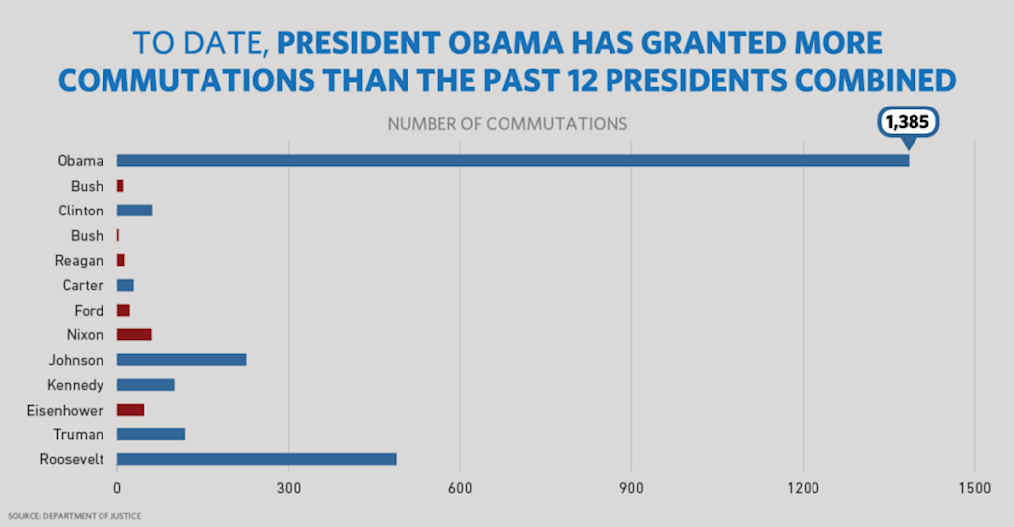

Learn more about the Obama Administration
Browse the story of President Obama’s administration and the Obama family’s time in the White House.
Explore by Topic or Era